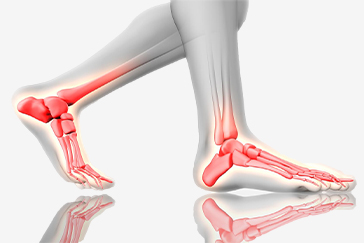 Book Appt.
Book Appt.
 Call Now
Call Now


The medial patellofemoral ligament (MPFL) is a crucial stabilizing structure in the knee joint, responsible for preventing the patella (kneecap) from dislocating towards the outside of the knee. When the MPFL is torn or injured, it can lead to significant pain, instability, and functional limitations in the knee.
Causes of MPFL Tears
MPFL tears are most commonly associated with traumatic events or repetitive stress on the knee joint. Some common causes include:
Symptoms of MPFL Tears
The symptoms of an MPFL tear can vary in severity and may include:
Diagnosis
Diagnosing an MPFL tear typically involves a combination of clinical evaluation, medical history, physical examination, and imaging studies:
Treatment Options
The choice of treatment for an MPFL tear depends on several factors, including the severity of the injury, the patient's age, activity level, and overall health. Treatment options may include:
Conservative Management:
Surgical Intervention:
Rehabilitation:
Regardless of the chosen treatment option, rehabilitation plays a crucial role in recovery. Physical therapy is often recommended to help restore strength, range of motion, and function in the affected knee.
Outlook
The prognosis for individuals with MPFL tears can vary widely depending on factors such as the severity of the injury, the effectiveness of treatment, and adherence to rehabilitation. Many individuals with mild to moderate MPFL tears can successfully manage their condition with conservative measures and return to their regular activities.
For those who require surgery, the outcome is generally positive, with the majority experiencing improved knee stability and reduced symptoms. However, recovery times can vary, and it may take several months to achieve full strength and range of motion.
SHALBY Sanar International Hospitals provides extensive medical procedures backed up with our state-of-the-art technology and a team of highly qualified & experienced clinical experts.
Our doctors pen down their research findings and experiences from time to time. Their words provide deep insight into the latest techniques, technologies and other advancements in healthcare. It provides expert answers to all kinds of health questions for real-life issues.
VIEW ALL




Since the day of its foundation, SHALBY Sanar International Hospitals is committed to provide comprehensive healthcare services. It regularly organizes awareness programs in its premises and encourages outdoor healthcare activities and camps with an intent to put focus on preventive healthcare.
VIEW ALL